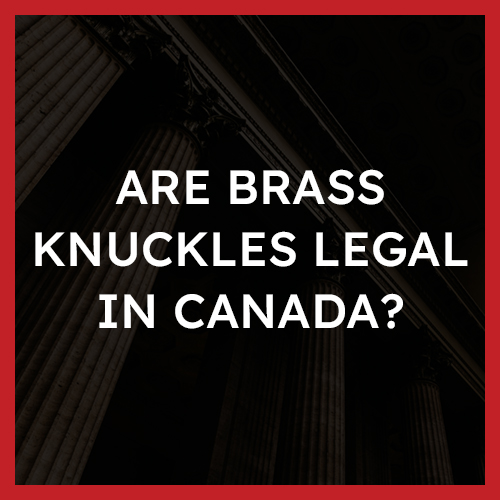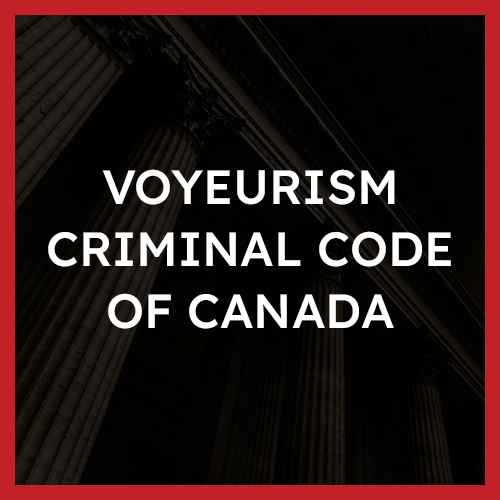Talking to the Police in Canada: Know Your Rights
What you need to know when talking to the cops in Canada
In Canada, when interacting with the police, you have the right to remain silent, the right to legal representation, and the right to be informed of the reason for your arrest. You also have the right to refuse a search without a warrant, and the right to be treated without discrimination. It’s important to remain calm and respectful, as anything you say may be used as evidence. If you’re detained, you have the right to contact a lawyer and must be informed of this right.
Never Talk To The Police
What you need to know when talking to the cops in Canada
In Canada, when interacting with the police, you have the right to remain silent, the right to legal representation, and the right to be informed of the reason for your arrest. You also have the right to refuse a search without a warrant, and the right to be treated without discrimination. It’s important to remain calm and respectful, as anything you say may be used as evidence. If you’re detained, you have the right to contact a lawyer and must be informed of this right.
What are my rights when talking to the police in Canada?

- Not to be stopped by anyone from moving about – you’re entitled to not be arbitrarily detained or imprisoned. If you are detained or imprisoned you have certain rights (see: ss. 9 and 10 of the Canadian Charter of Rights and Freedoms)
- To remain silent and are not obligated to talk to police. Remember that the police are allowed to talk to anyone that they like. Also, remember that this does not apply if:
- you have been stopped while driving a vehicle (see section below for more detail);
- you’ve been involved in a car accident; or
- you’re asked to identify yourself (further, it is an offence to lie about your identity)
- To know whether you’re under arrest or whether you’re being detained. If a police officer stops you, you can ask them if you are free to go. If they say “yes” then you can go. If they say “no” then you are being detained.
- If the police want to detain or arrest you, they must:
- have initiated a legal traffic stop;
- have an arrest warrant;
- have reason to suspect that you have committed an offence; or
- have reason to believe you are about to commit an offence
- To be informed of the reason(s) for your arrest (unless you were caught in the act of committing the offence)
- To not be unreasonably searched or have your items unreasonably seized
- To be informed of any changes to the reason/s for your arrest at any time
- Upon arrest, the police must inform you of your right to speak to a lawyer. The police must provide you with the means of contacting a lawyer, including letting you use a telephone and if you cannot pay for the services of a lawyer, the police must tell you about the free legal services available and provide you with their phone number.
- Unless, and until you have a good opportunity to speak to a lawyer of your choice, the police cannot ask you questions or attempt to gather evidence from you
- Your right to remain silent flows even after you speak to your lawyer. You continue to have the right not to talk to the police or say anything about your involvement in any offence
- You can waive your right not to speak to a lawyer and tell the police that you do not want a lawyer. This waiver not to speak to a lawyer must be voluntary and understood by you.
What are my rights when pulled over by the police?
Under the law, driving is considered to be a privilege and not a right. Therefore, police are provided more latitude to investigate traffic offences by conducting legal traffic stops. When you are pulled over in a traffic stop, your rights are somewhat different as opposed to speaking to the police generally. Some things to remember when being pulled over by the police include:
Police are generally allowed to execute a traffic stop for the following reasons:
- to check for proper documentation;
- to ensure/confirm the mechanical soundness of your vehicle;
- to determine whether a driver is intoxicated by either alcohol or drugs; or
- if they suspect you have committed a driving offence
You are obligated to provide all documentation (this includes your driver’s license, proof of insurance, and proof of vehicle registration).
While traffic stops are considered to be a form of detainment (unless you’re been told you’re free to go on your own volition), they are held to be constitutional given that they are generally short in time span and the safety of drivers is a reasonable limit to individual roadside rights.
There are of course circumstantial exceptions to these general rules.
The police want me to come for an interview, should I go?
If this is the case, always consult a lawyer. When speaking to the officer inviting you for an interview, ask:
- am I under investigation for something? (It’s quite obvious that the answer to this is yes, however, it is good to confirm so that you can relay this information to your lawyer);
- what am I under investigation for? (The police may or may not answer this over the phone);
- will I be placed under arrest when I attend the police station?
Regardless of whether you are not being invited for arrest purposes or just for an interview, you do not need to attend. You are under no obligation to talk to the police. Failing to attend the police station may result in police attending your location to either speak with you or arrest you. In such a scenario, you are still entitled to your legal rights including the right to silence and rights upon arrest (the right to legal advice/counsel, the right to be informed of the reasons for arrest, etc.) Being asked to attend the police station is a matter of convenience to the police, and often the suspect. However, this is never a requirement. Nevertheless, a lawyer will often advise you to attend (especially if you are being asked to attend an office for arrest). This is ONLY AFTER the individual has garnered individual legal advice and made the appropriate arrangements to protect their own interests.
The rule of thumb when invited to speak to police, is to first speak to a lawyer.
What should I do if the police come to my home?
The Canadian Civil Liberties Association’s “Guide to Dealing with the Police” succinctly explains one’s rights when handling police who attend your home:
The police are allowed to come to your home to talk to you, but you are not generally required to answer their questions or grant them access to your home. The police may only enter your home under a set of specific circumstances.
These include:
- The police have a warrant to enter your home to arrest someone
- The police have a search warrant
- The police have permission from you or someone else in authority in your home
- There are urgent circumstances that require the police to enter your home (a 911 call indicating an emergency at the address, someone yelling or crying for help from inside, etc.)
- The police may also enter your home if they suspect that a crime has been committed in relation to property in your home. In this case, the suspected criminal activity must have been committed against you, not by you.
If the police come to your home with a search warrant, they must identify themselves and ask permission to come in. If they have a valid search warrant, you must let them in. If you refuse, they may enter your home without permission. If you try to prevent them from coming into your home, you may be charged with obstructing the police. In most cases, the police must also show you a copy of the warrant. If they do not offer to show you the warrant, you can ask them to see it. Make sure that the information on the warrant is correct. For example, check that the correct name and address are listed and see if there are any time limits about when the police can use the warrant. The police are expected to act reasonably in their search. This means that they are not allowed to use excessive force or damage property for no reason.
Furthermore, the police can enter your home without your permission in the following urgent circumstances:
- A 911 call has been made from your home, and the police believe that entry is necessary to prevent death or serious injury.
- Where the police believe that someone in the home is in need of emergency services.
- To help someone who has reported a domestic assault to safely remove their belongings.
- To protect people from injury if the police suspect that there is a drug laboratory in the home.
The police want to get my side of the story, what should I do?
Again, consult a lawyer. Let the officer know you’d be happy to provide your side of the story through your lawyer. If you don’t have a lawyer, get in contact with one. If you do have a lawyer, provide the officer with your lawyer’s contact. Again, you are under no obligation to speak with the police.
One unique service that our firm provides is pre-charge legal services advice. This means that before you are even charged with an offence, but are under investigation, we will help you navigate the investigation process, make certain all of your rights are being upheld, and ensure your version of events is properly shared with law enforcement should this be your wish.
There is considerable risk in providing a statement to police or providing ‘your side of the story’. This statement can have the capacity to be self-incriminating or you may be providing evidence that eventually a prosecutor may use against you in a court of law. There is nothing wrong with wanting to share your side of events, however, a lawyer’s assistance and advice on this front will mitigate all of the inherent risk in providing police with a statement.
Can I speak to the police off the record?
The short answer to this is, no. There is no such thing as “off the record” when it comes to speaking with law enforcement. Anything you say to a police officer is fair game and ultimately can be used against you. Some exceptions to this may be if the officer acted unfairly or your rights were not properly upheld when you provided such statement. When speaking to the police, assume everything you’re saying is being recorded. Good practice on the part of the officer is to make you aware that the conversation is being audio and/or video recorded.
FAQs
Can the police search my car?
It depends. Generally, no, the police are not allowed to search your car when they’ve pulled you over and are conducting a routine traffic stop (e.g., to investigate the sobriety of the operator, to check documentation [that the driver has with them insurance, registration, and an operator’s license], and/or to check mechanical fitness of the vehicle). This is of course unless: a) they have a warrant; b) you consent to them searching your vehicle; c) you have been arrested in or near the vehicle and the police have reasonable grounds to believe there is evidence connected to the offence you’re under arrest for in the vehicle; d) they believe there is an imminent safety concern while you are detained; and/or e) unless, under the plain view doctrine, they observe something in your vehicle that is illegal or would otherwise be incriminating evidence.
The plain view doctrine says that police officers are allowed to initiate a search or seize items based on immediately apparent evidence that is inadvertently discovered in the exercise of a lawful intrusion. For example, if the police noticed through your window, what looked to be like a bag of cocaine on the back seat, they may have grounds to search your vehicle.
Police cannot normally ask you to open your glove compartment, pop your trunk, or open containers even if those containers are in plain view.
Can the police search me?
Generally, no. The police cannot search you unless you have just been placed under arrest, the police have reasonable grounds to believe a search is necessary for imminent safety concerns, or you have consented. In situations where you believe you’re being unlawfully searched, don’t become hostile or aggressive. Express your objection to the search and contact a lawyer as soon as possible to share your experience/concerns. Some exceptions to the general rule that police are not allowed to search you unless consented to or upon arrest include where:
- The police find you in a place where they are lawfully searching for contraband that they suspect you may be in possession of.
- They find you in a vehicle and have reasonable grounds to believe you are transporting or drinking alcohol illegally.
- The police believe you may have on you a weapon.
What if the police have a search warrant?
If the police have a search warrant, they are entitled to search only the place or entity that they have been granted the search warrant for. If they are for some reason obstructed in carrying out this warrant, they are permitted to use as much force as necessary to effect the warrant. Law enforcement officers are allowed to seize anything itemized within the warrant itself or anything they discover in effecting the warrant that is illegal and may be evidence to the offence (weapons, drugs, etc.). Again, it is best if you think a warrant has been improperly executed or authorized, to refrain from being hostile or aggressive. Instead, make known your objection to the search being carried out, yield to the search (don’t interfere) and contact a lawyer as soon as possible to discuss your concerns.
If I’m arrested do I have to answer police questions?
No, you do not need to answer any of the police officer’s questions except to provide them with your basic contact information such as name, phone number and address (essentially what can be provided on a driver’s license). You have a constitutional guarantee to the right to remain silent. A non-exhaustive list of exceptions to this rule are outlined here.
Can I lie to the police?
No. Lying to the police is an offence in Canada. You should never lie to law enforcement. However, you are absolutely entitled to remain silent and provide the police with no statement (unless your circumstances fall within one of the exceptions discussed above, here).
Contact Us
If you have been charged with a criminal offence, visit our location pages to contact our team.
About The Author
Ask A Question
We endeavor to respond to questions within 24 hours. If your matter is urgent, please call our office or submit a request for a free consultation.







